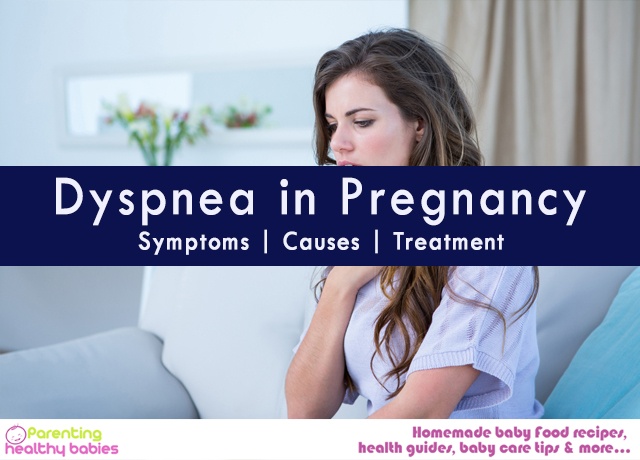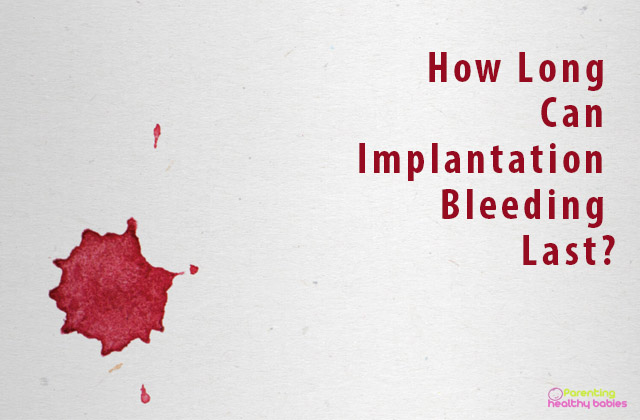During pregnancy, a lot of changes are happening in the body. Needless to say, the raging hormones and physical changes happening in the body can always keep a pregnant woman on the edge. Accompanied with several other changes, a pregnant woman also faces shortness of breath during the course of pregnancy. While, shortness of breath is common, the acute state must be treated. This acute form of shortness of breath is medically termed as “Dyspnea”. It is imperative to understand the symptoms, causes and treatment of Dyspnea to sail through a smooth pregnancy.
Read More: Shortness of Breath in Pregnancy
What is Dyspnea?
Dyspnea is referred to shortness of breath. It is mainly associated with the cardiovascular and respiratory system. Dyspnea is generally experienced while doing an activity or at period of rest for a long time. There are two types of Dyspnea-acute and chronic. In acute dyspnea, shortness of breath lasts for just about few weeks, whereas in chronic, it lasts for more than a month.
Read More: Asthma during Pregnancy: Sign, Symptoms, Risk, and Treatment
Causes of Dyspnea
Shortness of breath can occur due to many reasons, but dyspnea in pregnancy are caused due to the following factors
- Anxiety
- Asthma
- Chest infection
- Respiratory disorders
- Lungs constriction by the uterus
- Exercise
- Physical exhaustion
- Effects of progesterone
- Viral infections
- Chest cavity construction due to growing uterus
- Anemia
- Low blood pressure
- Pulmonary embolism
Signs and Symptoms of Dyspnea in Pregnancy
Dyspnea is often fell during a prolonged period of rest or during a particular activity. It occurs when the air passages are constricted and there is shortage of air to breathe. Some of the common signs and symptoms of dyspnea include
- Gasping for breath
- Body weakness
- Increase in heart rate
- Bluish discolouration of nails and skin
- Restlessness
- Abnormal breathing patterns
- Tiredness
Treatment of Dyspnea in Pregnancy
In the second trimester and third trimester, the uterine cavity is expanding due to the growing fetus. Hence, a woman is likely to experience shortness of breath more frequently. Listed below are some methods to help ease dyspnea in pregnancy.
1} Good body posture
A good body posture goes a long way in providing relief from dyspnea. While in sitting position, always keep the shoulder places back and chest lifted. This gives ample space for the lungs to expand. While sleeping, keep your body elevated by propping up more pillows behind your back.
2} Change position
If you are feeling breathless and uncomfortable in a certain position, try shifting to a more comfortable position. This may help you breathe more easily.
3} Breathing exercises
This is one of the best remedies for shortness of breath. Perform breathing exercises as they will help increase the lung capacity and enable you to breathe. Try inhale and exhale exercises every morning and evenings that involve your rib cage to ease out the symptoms of dyspnea.
4} Aerobic exercises
Mild aerobic exercises are always recommended in pregnancy. Often not being fit in pregnancy could increase your breathlessness. Your baby also needs ample of oxygen to grow well inside. Consult your doctor and learn a few aerobic exercises to stay fit. Light cardio and aerobic exercises also keep the cardiovascular and respiratory system functioning smoothly.
5} Avoid tedious tasks
You need to relax from time to time during pregnancy. Do not over exert yourself at work or carry heavy objects at home, as this can further worsen dyspnea. Take breaks from time to time and allow your body to recover.
During pregnancy, over the counter medications and drugs are generally not prescribed as they are not safe for the mother and developing fetus. However, if you experience chronic dyspnea, your doctor may prescribe certain anti-inflammatory drugs and antibiotics that are safe to consume in pregnancy, in order to ease out the symptoms.
When to reach out to a doctor?
It is common to experience dyspnea during pregnancy, and the above measures will greatly help treat and control dyspnea. However, if you experience serious symptoms you must rush to a doctor. Listed below are some symptoms which to be watched out for:
- Bluish discolouration on nails, skin, and lips
- Giddiness
- Prolonged breathing problems
- Extreme exhaustion
- Severe pain in chest
- Insomnia and restlessness
- Anemia
- Rapid increase in heart rate
If you do not control shortness of breath, the lack of oxygen can harm both the mother and developing baby. Hence, it is extremely important to watch out for worrying symptoms and work on measures to treat dyspnea effectively. Post-delivery, the progesterone hormone gradually decreases thereby reducing the pressure on the uterus and diaphragm. In a couple of months, dyspnea disappears and the body returns to being normal.
So if you experiencing dyspnea in pregnancy, you know what to do!
References
https://www.medicalnewstoday.com/articles/314963.php
https://howshealth.com/dyspnea/













